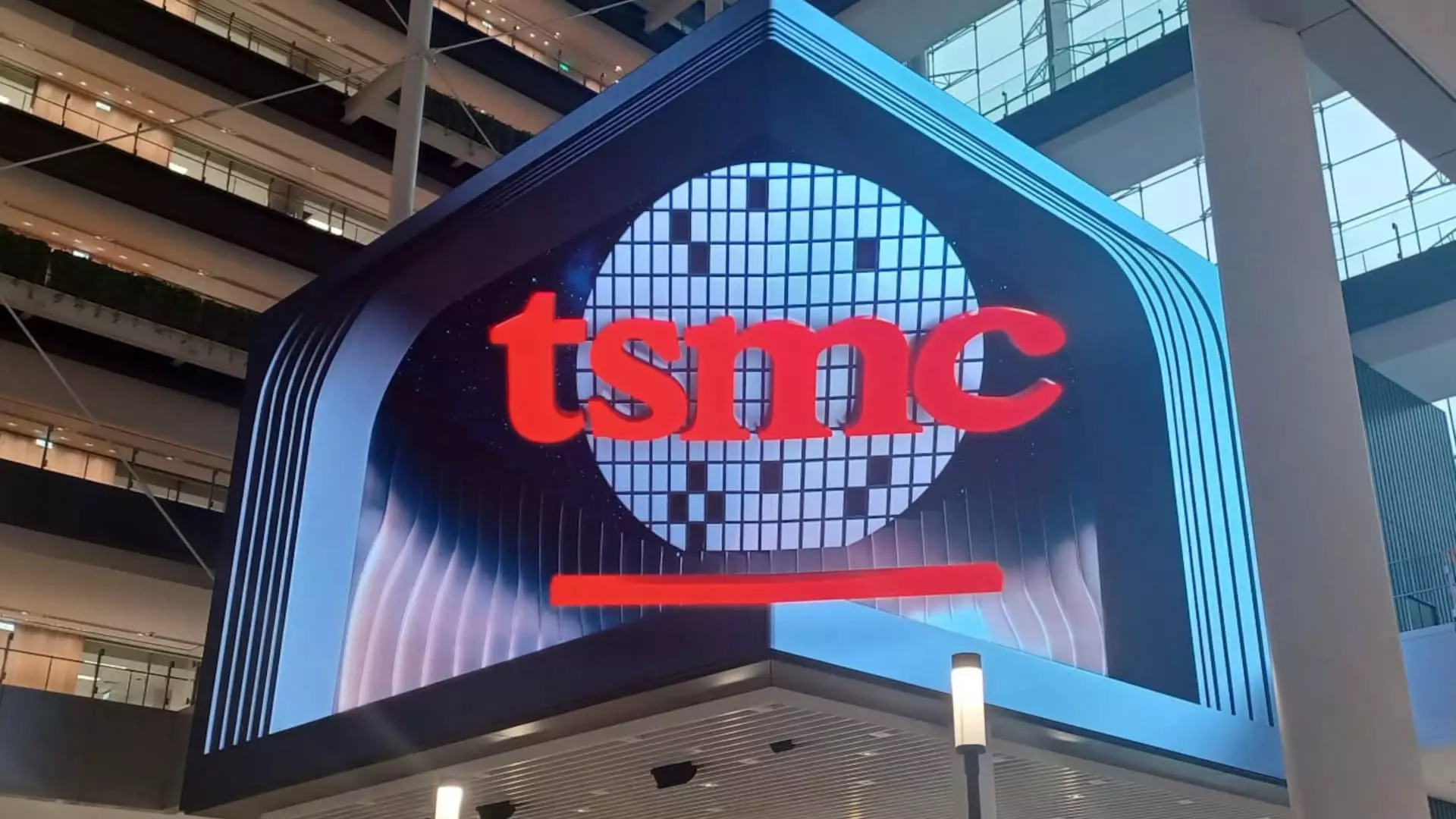Taiwan Semiconductor Manufacturing Company (TSMC) has once again shown its prowess in the semiconductor industry, posting impressive figures for the fourth quarter of the fiscal year. The surge in demand for advanced chips—particularly those relevant to artificial intelligence (AI) applications—has helped TSMC exceed market expectations. This article aims to unpack the company’s fourth-quarter performance, examine its strategic advantages, and discuss the challenges that lie ahead.
Record-breaking Revenue and Profit Performance
TSMC reported a staggering net revenue of NT$868.46 billion (approximately $26.36 billion), which surpasses analysts’ forecasts of NT$850.08 billion. Similarly, net income climbed to NT$374.68 billion, beating the expected NT$366.61 billion. This translates to a 57% rise in profits and a remarkable 38.8% increase in revenue compared to the same quarter the previous year. Such results not only mark a new historical high for TSMC but also reflect an overarching trend of escalating demand in the technology sector, particularly in high-performance computing.
The growth can be further contextualized when considering TSMC’s earlier forecasts, which estimated fourth-quarter revenue to be between $26.1 billion and $26.9 billion. Achieving figures beyond the high point of these estimates demonstrates the company’s effective management and the solid demand for its advanced chip technology. The high-performance computing (HPC) division, which accounts for cutting-edge AI and 5G applications, has become the driving force behind this success, contributing more than half—53%—of the total revenue in the fourth quarter.
Brady Wang, an associate director at Counterpoint Research, identifies AI chip demand as a significant factor driving this robust financial performance. Notably, the latest offerings from Apple, specifically the iPhone 16, have also contributed to TSMC’s record revenues, highlighting a symbiotic relationship between consumer electronics and high-performance semiconductor needs.
Looking ahead, TSMC’s CFO Wendell Huang noted during the earnings call that the robust demand for AI-related products is expected to persist throughout 2024. Products designed for AI accelerators are predicted to make up “close to a mid-teens percentage” of TSMC’s total revenue. Furthermore, Huang expressed optimism about doubling AI accelerator revenue by 2025, as business in this segment is anticipated to continue surging due to the increasing integration of AI into various applications.
Despite its accomplishments, TSMC isn’t without challenges. The company is at the mercy of geopolitical dynamics, particularly U.S. restrictions on semiconductor exports to China. These constraints, coupled with the uncertain trade policies expected under President-elect Donald Trump, could create significant obstacles for TSMC’s operations, especially concerning its market strategies in China.
Trump has previously indicated a desire to impose considerable tariffs on imports and has made claims about Taiwan stealing U.S. technological advancements in the semiconductor space. Consequently, TSMC has chosen to maintain a low profile in political matters, opting not to attend Trump’s inauguration—a choice reflecting its intention to prioritize business continuity over engagement in politically charged situations.
Counterpoint’s Wang remains confident that 2025 will still be a lucrative year for TSMC, attributing this belief to the consistent and expanding requirements for AI applications fueled by diverse market needs. The stock performance echoes this optimistic sentiment; TSMC’s shares were already up by 81% in 2024, suggesting strong investor confidence in the company’s continued growth.
In a broader context, the positive momentum was also evident in European semiconductor stocks, with substantial gains among companies like ASML and ASM International. This collective uptick underscores the interconnectedness of the semiconductor segment, where the successes of leading manufacturers can influence market dynamics globally.
TSMC’s fourth-quarter achievements mark a noteworthy chapter in the company’s storied history, characterized by innovation in AI chip production and impressive financial milestones. Nevertheless, the specter of geopolitical tensions looms as a potential threat to future growth. With an optimistic forecast grounded in strong demand, TSMC seems poised for continued success, yet must navigate carefully through the complexities of international trade relations to maintain its standing as the preeminent player in the semiconductor industry.


Leave a Reply